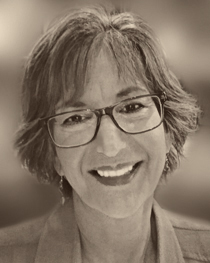Change & Student Anxiety
There's a lot these days to feel anxious about, especially going back to school.

any young adults commonly experience anxiety when headed to a college or university. If acknowledged in an appropriate and timely fashion, anxiety can be resolved and the deeper pattern of depression prevented.
The young adult leaving the safety of home, the comfort of family and the familiarity of his or her neighborhood can discover fear and worry around the corner. So much of the unknown replaces the previous support system – a new environment, new diversity, new roommates, classes, professors, even food... a whole new way of life!
The idea of everything new is often compounded by the pressure to achieve good grades, maintain responsible debt and the grim reality of the job market. In this post-9/11 world there is the added factor of campus safety. Will there be a terror attack, another mass shooting? Or simply personal safety when enjoying new relationships - what new people should be trusted during recreational times of vulnerability? How do you prevent sexual assault?
Here are a few tips parents and young adults themselves can use to ease the way when transitioning from home to away from home.
1. Worries are valid concerns that should be considered, articulated and shared.
The resolution to a worry is often only a few steps away from its first expression. But the worry is seeking expression first.
2. Seek one or two campus-sponsored activities that would be enjoyable.
These are safe ways to make new friends and encourage positive identification with the changes that are happening. In the large population of the university many people often share a common hobby, sport, exercise such as yoga or taste in art, theater or music; often a group in a school-sponsored setting is available. Change can be a process, and integrating into a healthy, enjoyable group can bring a sense of enthusiasm and belonging to the overall process.
3. Look up information on good nutrition and exercise then stay vigilant.
A nutritious active lifestyle reduces the symptoms of anxiety and keeps the immune system, the mind and the emotions balanced and strong. One good place to start is mypyramid.gov.
4. Consider counseling if anxiety begins interfering with life.
Good counseling empowers an individual by teaching new tools for managing , such as thought stopping and thought replacement, relaxation, meditation and visualization. The root causes of anxiety can be explored and resolved. The healthy management of anxiety is a fundamental concept in adulthood. Young adults, moving out in new independence, may be experiencing an anxiety of unprecedented proportions.
Listening to concerns allows anxiety to be addressed and resolved, and the integration into campus life can become fresh and exciting, with new opportunities to learn and grow. 
Meet Harlee Abromson, LCSW, Licensed Clinical Social Worker, Director:

More Articles:
Email Contact Harlee Abromson
Copyright ©2011- The Center for Counseling Arts. All rights reserved.